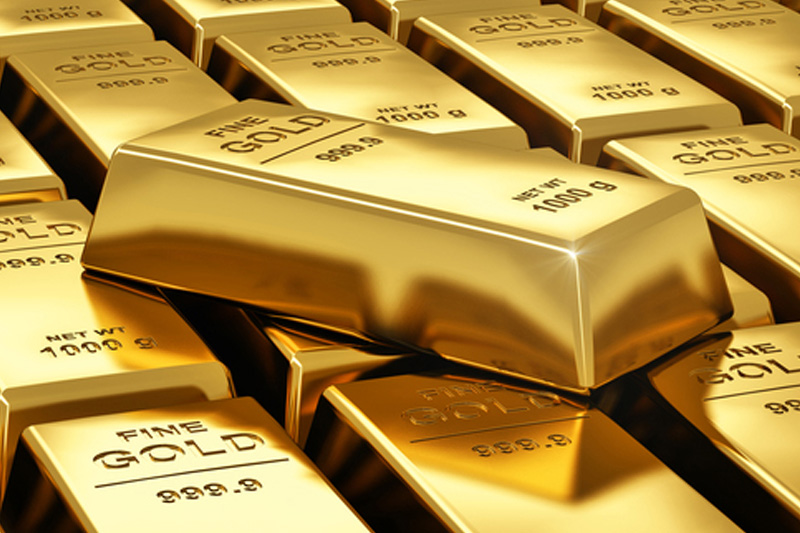Investing.com -- Gold futures pulled back on Wednesday after European Central Bank president Mario Draghi offered little sign of curtailing the bank's ambitious quantitative easing program even if the European economy improves unexpectedly over the next 15 months.
Draghi also offered a somewhat muted response to his position on the ongoing Greek debt saga, unwilling to tip his hand ahead of a series of obligations the beleaguered nation must meet later this month.
On the Comex division of the New York Mercantile Exchange, gold for August delivery fell 10.90 or 0.90% to 1,183.50 a troy ounce. Gold futures wavered between a low of $1,179.80 and a peak of $1,195.60 to remain under $1,200 for the second consecutive session. Gold prices were relatively unaffected by Draghi's comments at the bank's June press conference in Frankfurt.
The gold market has been relatively steady over the past two weeks after peaking at a three-month high of 1,232.80 on May 18. Gold futures have moved less than 1% in either direction in six consecutive sessions and 11 of the last 12.
Gold likely gained support at 1,177.90, the low from May 7 and was met with resistance at 1,204.70, the high from June 1.
One day after reports indicated that inflation in the euro zone rose modestly last month, Draghi hiked the bank's inflation expectations for the remainder of the year forecasting average inflation of 0.3% for 2015. Draghi's sentiments underscore the early success of the ECB's €60 billion a month bond buying program, which began in March in an effort to stave off deflation.
Initially, the ECB intended to continue the €1.1 trillion program through September, 2016 if inflation moved toward its targeted goal of 2% and the European economy showed other signs of improvement. When pressed on Wednesday on whether the ECB could end the program sooner than expected, Draghi responded that the ECB could in fact expand the program “if other factors would create an unwanted tightening of monetary policy."
Draghi also triggered a sell-off in European sovereign debt by telling investors they should expect "periods of high volatility," in the bond markets. German 10-Year bunds soared 17 basis points to 0.88%, its highest level since October. Yields on British, French and Dutch 10-year bonds all rose by at least 10 basis points.
The majority of investors, however, did not scurry to gold following the sell-off.
Draghi provided little to no hints on how the ECB could respond to a variety of scenarios related to negotiations with Greece, saying only that he would like to reach a "strong" agreement to settle the impasse. Greece prime minister Alexis Tsipras, meanwhile, is scheduled to hold another series of talks with the nation's international creditors on Wednesday evening. Greece has described its latest proposal to its troika of creditors as its "last, best offer."
Athens officials said Wednesday that it will delay payment on a €305 million obligation to the International Monetary Fund on Friday if a deal is not reached in the next several days.
The U.S. Dollar Index, which measures the strength of the greenback versus a basket of six other major currencies, fell 0.57% to 95.44. Dollar-denominated commodities such as gold become more expensive for foreign purchasers when the dollar appreciates.
Silver for July delivery plunged 0.337 or 2.01% to 16.462 an ounce.
Copper for July delivery lost 0.009 or 0.31% to 2.728 a pound.
